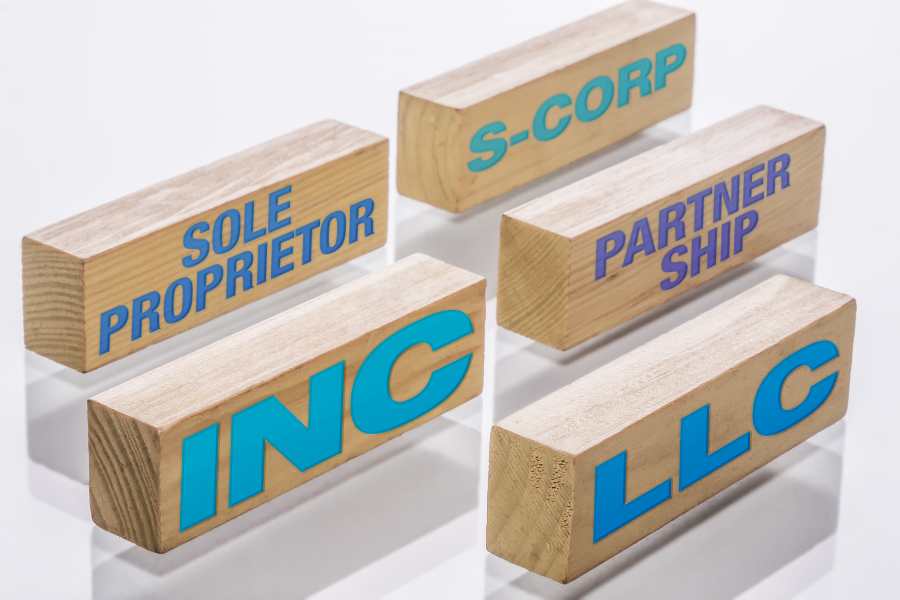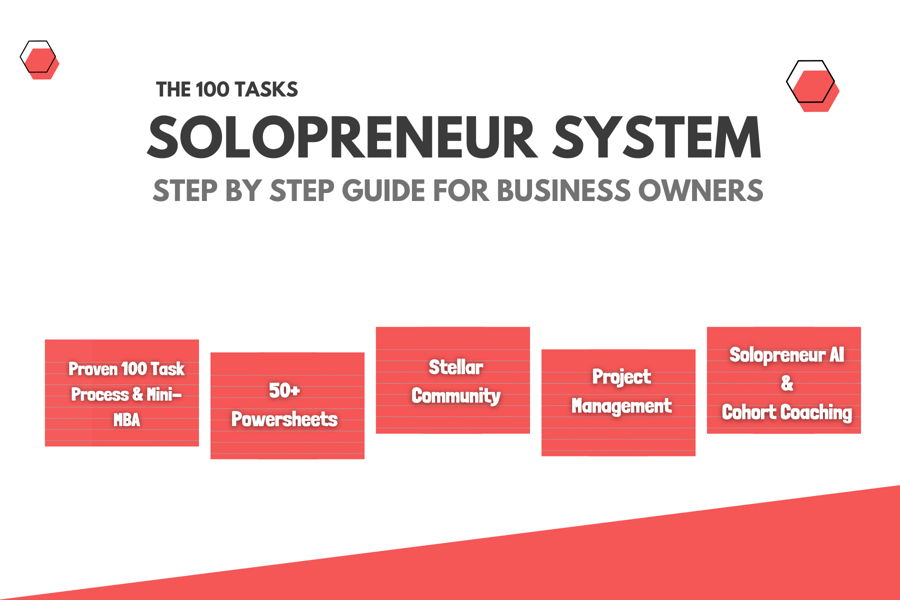Learn the reasons why you should incorporate a business as a freelancer and enhance your freelancer business for simplified and empowered success.
In the world of freelancing, deciding whether or not to turn your gig into an official business is like standing at a crucial crossroads. Company incorporation is not just about your skills; it’s a smart move that involves your personal goals, money matters, and legal stuff.
Considering the potential tax benefits and liability protection, you might ask yourself, “Should I incorporate my business?” As a freelancer, you’re like an artist creating your own unique story with a mix of talents, dreams, and a hunger for success.
But in this creative journey, there’s a chess game where every move counts, affecting your career in different ways. Deciding whether to become a “business” is not a one-size-fits-all decision; it’s a personal choice shaped by your dreams and goals.
Are you dreaming big, aiming to build a business empire? Or are you more of a free-spirited creative person? Your answer guides the path you take. This journey is all about understanding the ins and outs of freelancing, and figuring out if turning your gig into a business is the right move.
You must analyze your personal lifestyle goals and ambitions, untangle the confusing legal and money matters, and make choices that fit your dreams. The destination isn’t just having a successful freelancer business but finding a path that matches your dreams and creativity in the freelancing world.
Disclaimer: The information provided here is for general informational purposes only and should not be construed as legal advice. Consultation with a qualified legal professional is recommended for specific legal concerns or questions.
The use of information on this platform does not establish any attorney-client relationship. We strive to ensure the accuracy of the information, but we make no representations or warranties of any kind, express or implied, about the completeness, accuracy, reliability, or suitability of the information.
Reliance on the information is strictly at your own risk. We disclaim any liability for any loss or damage incurred in connection with the incorrect use of this information.
Contents
8 Reasons to Incorporate a Business as a Freelancer
Whether or not you should incorporate your business as a freelancer depends on various factors, including your specific situation, goals, and the legal and financial implications involved.
Here are some factors to consider in the process of incorporation:
#1. Legal Structure Options
Choosing the right legal structure for your freelance business is akin to selecting the right foundation for a building—it sets the groundwork for everything that follows.
Each legal structure, whether it’s a sole proprietorship, LLC, or corporation, comes with its own set of rules, responsibilities, and financial implications. Your choice influences how you’re taxed, your personal liability, and even your ability to attract clients or investors.
The decision isn’t just about paperwork; it shapes the very essence of your business. Opting for the right legal structure is like tailor-fitting your business suit—it ensures a comfortable and effective fit, allowing you to navigate the freelancing landscape with confidence and stability.
Here are some legal structure options to consider:
- Sole Proprietorship: As a freelancer, you may operate as a sole proprietor without formally incorporating. This is the simplest form, but you and your business are considered the same legal entity, exposing your personal assets to business liabilities.
- Limited Liability Company or Partnership (LLC/LLP): LLC/LLP incorporation provides a level of personal asset protection while maintaining simplicity in terms of paperwork and taxes.
- Corporation: Some freelancers choose to incorporate as a corporation, providing stronger liability protection but often involving more administrative complexity.
Opt for efficient incorporation registration services, ensuring a smooth and trouble-free process as you officially establish and register your business.
Registered Agents Inc. will set up your company, domain name, website, phone number, professional email, business infrastructure, customer communication channels, and online presence. They will also help your business stay in good standing by completing state and federal filings.
A registered agent is responsible for legal mail, but what about invoices, reports, order confirmations, or postcards? Registered Agents Inc. can supply a business address in a commercial building in your state and scan and upload your mail.
#2. Liability Protection
Selecting the appropriate legal structure for your freelance venture is a strategic cornerstone with far-reaching consequences. Opting for structures like an LLC, LLP, or corporation delineates clear boundaries between personal and business finances and shields your personal assets from potential business liabilities.
Imagine you’re a freelance graphic designer facing a client dispute; if structured as a sole proprietorship, your personal assets might be at risk. However, with the incorporation of a Limited Liability Partnership (LLP), LLC, or corporation, your personal belongings, like your car or savings, remain safeguarded.
The right legal structure is a crucial shield, fortifying your business against unforeseen challenges and providing a secure framework for sustainable growth. You can also protect your financial and legal interests as a freelancer with this Independent Contractor Contract Template.
This lawyer-approved written agreement ensures timely payments, and intellectual property rights, and shields freelancers and clients from potential legal issues or lawsuits.
To ensure you get paid on time, have your client sign this Independent Contractor Contract Template. It will help you ensure that all your financial and legal interests are fully protected as a freelancer.
#3. Tax Implications
The choice of business structure for freelancers goes beyond paperwork; it significantly influences the tax landscape.
Various structures, such as sole proprietorship, LLC, or S corporation, come with distinct tax implications that can either be advantageous or cumbersome for freelancers.
Navigating this fiscal terrain is akin to unlocking a treasure trove of potential tax advantages and deductions tailored to your situation.
Imagine being able to optimize your tax liability or capitalize on deductions specific to your freelance endeavors. It’s not just about compliance; it’s about maximizing your financial gains.
Seeking guidance from a tax professional becomes paramount, unraveling the complexities and ensuring that your business structure aligns seamlessly with your unique tax scenario, potentially paving the way for significant financial benefits.
#4. Business Growth and Credibility
Embracing incorporation for your freelance business isn’t merely a bureaucratic formality; it can elevate your professional standing and credibility.
As a formalized entity, whether through an LLC or corporation, your freelance venture projects a level of professionalism that resonates with clients and partners. Many stakeholders prefer working with businesses that have a structured and formalized presence.
Incorporation signals commitment, stability, and a sense of reliability that can set you apart in a competitive freelancing landscape.
It’s not just about the legal status; it’s a strategic move that can influence how your business is perceived, potentially opening doors to new opportunities and partnerships.
If you need a proven step-by-step process, all-in-one guide, framework, toolkit, and community to help solopreneurs and freelancers launch, optimize, and automate their businesses 3 to 5 times faster, check out Martin Bell’s 100 Tasks Solopreneur System.
Click here to get the 100 Tasks Solopreneur System
#5. Costs and Administrative Burden
While the allure of incorporating your freelance business is undeniable, it’s crucial to weigh the costs and ongoing administrative commitments against the potential benefits.
Incorporation comes with a financial price tag, encompassing registration fees, annual reports, and other associated costs. Additionally, maintaining compliance requires ongoing administrative efforts.
The key is to assess whether the advantages, such as limited liability and enhanced credibility, justify the expenses and administrative burden in your unique situation.
It’s a cost-benefit analysis that demands a thoughtful examination of your goals, financial capacity, and long-term vision. Before taking the plunge, consider whether the investment aligns with the trajectory you envision for your freelance endeavors.
#6. Regulatory Compliance
Embarking on the journey of incorporating your freelance business requires more than just business acumen; it demands a keen understanding of your jurisdiction’s legal landscape.
Different regions have diverse regulations governing business structures, and compliance is paramount. Before diving into the intricacies of incorporation, diligent research into the local legal requirements becomes a non-negotiable step.
From registration processes to ongoing obligations, understanding and adhering to the laws in your area ensures seamless incorporation and shields your business from potential legal pitfalls.
It’s a proactive measure that safeguards your venture, reinforcing the foundation for a successful and legally sound freelancing journey.
#7. Future Plans
Contemplating the future trajectory of your freelance business unveils a critical juncture: the alignment of your long-term goals with the most fitting business structure.
If expansion, partnerships, or substantial financing loom on your horizon, opting for a more formal structure, such as an LLC or corporation, could be a strategic move.
These structures not only facilitate growth but also enhance your business’s appeal to potential partners and investors. Think of it as planting the seeds for scalability and credibility.
As you envision the evolution of your freelance venture, choosing a business structure that aligns with your ambitious aspirations becomes a forward-thinking decision, laying the groundwork for a resilient and expansive professional journey.
#8. Insurance Considerations
Irrespective of the chosen business structure for your freelance endeavors, safeguarding your enterprise with suitable insurance coverage is a prudent measure.
Unforeseen events, ranging from accidents to legal disputes, can disrupt even the most meticulously planned businesses. Insurance acts as a protective shield, offering financial security and mitigating risks that may arise in the course of your freelance work.
Whether you operate as a sole proprietorship, LLC, or corporation, having the right insurance coverage ensures that you can navigate unexpected challenges without compromising the stability and continuity of your business.
In the ever-changing world of freelancing, small business insurance serves as a reliable safety net, providing peace of mind as you pursue your professional aspirations.
What are the Steps to Incorporate a Company?
Discover the step-by-step process of how to incorporate your business, from choosing a suitable structure to filing essential documents and ensuring legal compliance. Incorporating a company involves several key steps:
- Research and Planning: Conduct thorough research on legal requirements and choose a suitable business structure.
- Name Selection: Select a unique and compliant business name. Check availability and ensure it aligns with your brand.
- Registered Agent: Appoint a registered agent with a physical address to receive legal documents on behalf of the company.
- Articles of Incorporation: Prepare and file the Articles of Incorporation with the relevant government authority. This document outlines essential details about your company.
- Create Bylaws: Draft corporate bylaws that define the internal rules and structure of your company.
- Hold Organizational Meeting: Conduct an initial meeting to appoint directors, adopt bylaws, and issue stock if applicable.
- Obtain an EIN: Obtain an Employer Identification Number (EIN) or Tax Identification Number (TIN) from your authorities for tax purposes.
- Licenses and Permits: Obtain necessary licenses and permits to operate legally in your jurisdiction.
- Open a Business Bank Account: Separate personal and business finances by opening a dedicated business bank account.
- Stay Compliant: Fulfill ongoing compliance requirements, such as filing annual reports and paying taxes.
- Consider Professional Help: Consult with legal and financial professionals to ensure compliance and optimize your company’s structure for your specific needs.
By following these steps to register for incorporation diligently with the help of a qualified legal professional, you can ensure a seamless process as you navigate legal requirements and the complicated process of company incorporation.
Don’t forget to consult with legal and financial professionals who can provide personalized advice based on your specific circumstances.
They can help you understand the legal, tax, and financial implications associated with different business structures and guide you in making an informed decision.
Explore top-notch business incorporation services to streamline the process and ensure a hassle-free transition as you formalize and elevate your business structure.
Freelancing Tips & Tutorials
- The 100 Tasks Solopreneur System for Freelancers
- How to Build a Successful Freelancer Business
- How to Scale and Grow Your Solopreneur Business
- 10 Tips to Safeguard Your Privacy as a Freelancer
- How To Build a Professional Freelance Resume
- Personal Finance for Freelancers and Solopreneurs
- 15 Most In-Demand Freelance Skills to Learn
- How To Negotiate Freelance Rates & Sell Value Instead of Price
- Personal Branding for Freelancers: How to Build a Freelancer Brand
- Remote Work Best Practices for Freelancers & Independent Contractors
- 10 Ways To Get More Freelance Writing Gigs
- 17 Steps to Build a Profitable Side Business
- 15 AI Side Hustles to Make Money on the Side
- How To Start a Freelance Digital Marketing Business
- Best Freelance Writing Classes: Learn Freelance Writing For Beginners
- How to Start a Content Writing Business and Be a Professional Writer
- How To Sell Homemade Dog Treats And Start A Dog Bakery Business
© 2023 – 2024, Priya Florence Shah. All rights reserved.
Priya Florence Shah is a bestselling author and an award-winning blogger. Check out her book on emotional self-care for women. Priya writes short stories and poetry and chills with her two-legged and four-legged kids in her spare time.
Discover more from Business & Branding Tips
Subscribe to get the latest posts sent to your email.













